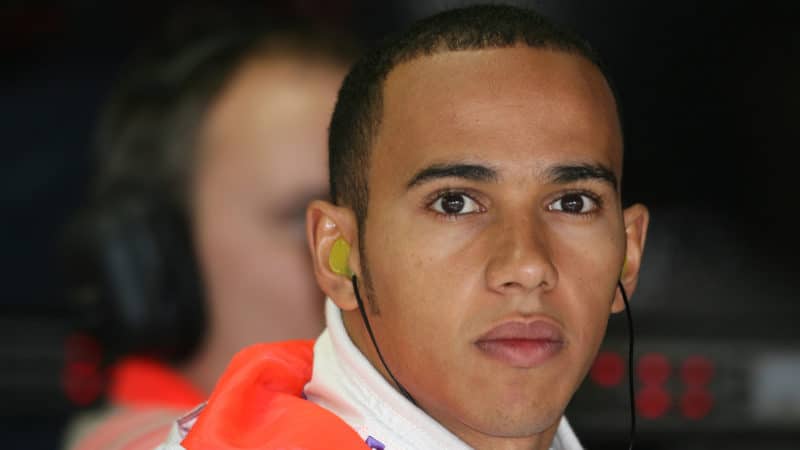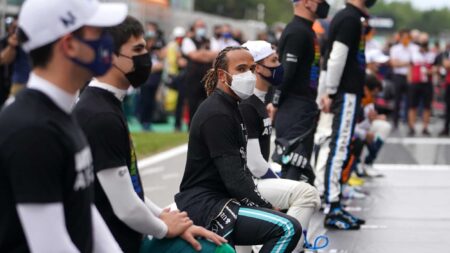“I have a great team of people, so there’s a huge amount of work that that went on in the background. A lot of calls, a lot of Zooms with the Royal Academy of Engineering behind the scenes, with four meetings where the whole Commission group came together. We were on there like for four or five hours I think, it was just spitballing, coming up with discussing ideas.
“I really wanted to keep an ear on the ground because it was a lot of information. Obviously I can’t do it on a race weekend, so I have people who are working incredibly hard in the background to make sure it’s communicated to me also.
“When it came to narrowing down. We could have had 40 recommendations but it would be impossible to set 40 off. So we had to narrow it down, and I was very much part of that, rounding down to the most efficient ones or the ones that we feel that could have the biggest impact.”
The seven-time F1 champ articulated he wants to see real action effected by the report.

Hamilton says he didn’t feel comfortable fulling expressing himself when first in F1, for fears of hurting his own career progression
“The key for me was really to make sure that this is a commission that actually really does something, [that] it’s not just findings that end up being on a shelf. So, working closely with Stefano [Domenicali], we’ve already seen some of the stuff that Formula 1 are doing, so hopefully these findings– there’s 100-plus pages, so there’s a lot of detail in there – can help F1 do a better job and be more efficient with where they’re putting their efforts towards, working with Stefano with Jean [Todt] and his team, and me personally.”
Hamilton also described his own difficulties in education, including a period when he was mistakenly expelled from school — subsequently being cleared of any wrongdoing. He also spoke of his growing pains in expressing himself within the pressure of the F1 bubble, explaining how that lent further motivation to the drive for equality he hopes the report could help deliver.
“One of them [the points] for example that was really close to my heart, was I that was wrongfully expelled at school, and I know that young Afro Caribbean kids two and a half times or nearly three times more likely to be expelled [than students of other ethnicities]. I know the impacts of what that is like, so that’s one of the recommendations we have is to address that and provide more support in there.
“I think today, we live in a time where you can people are able to express themselves more. We’re seeing youngsters coming into this sport and able to be more of themselves. I think for me personally, that wasn’t necessarily the feeling when I when I got in, but over time I was able to adjust. I think going back, I would just say ‘Just be you.’ But I think at the time the risk felt so great, that it would stop me from reaching my dreams.”



